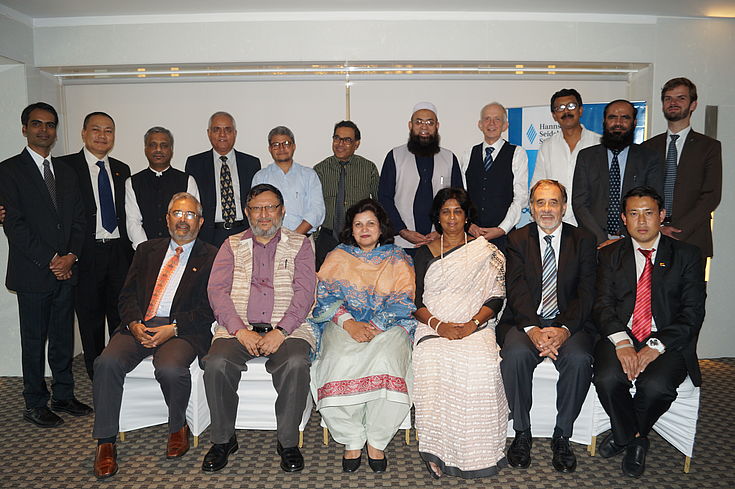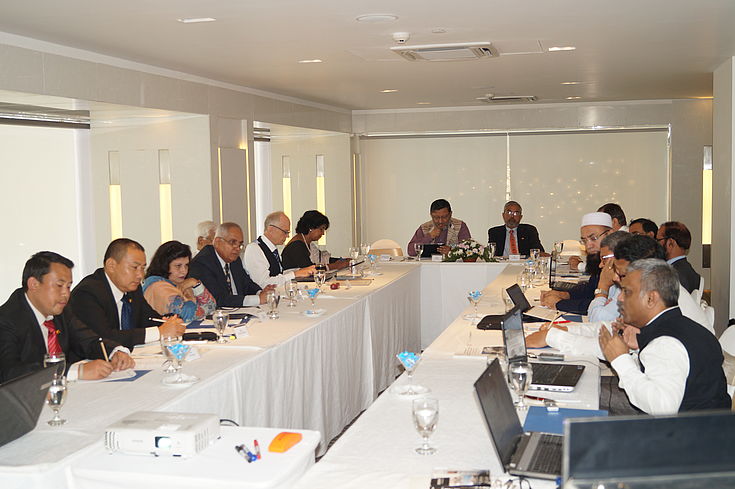News
4th Comprehensive Security Dialogue (CSD) Conference
Participants of the Comprehensive Security Dialogue
The conference aimed at developing a cohesive understanding about the hydropolitics and multilateral cooperation in terms of the impact of climate change and hydroelectricity in the region. The issues of data sharing, collation and assessment prominently figured in the discussion, given the compartmentalisation and securitisation of data collection in the region. Engaging the existing regional platforms such as South Asian Association for Regional Cooperation (SAARC) more proactively was emphasized. Moreover, the possibility of creating one regional platform to deal with the climatic issues was also explored.
The Comprehensive Security Dialogue is a forum, which was initiated by the Hanns Seidel Foundation in 2012 in Colombo, and which aims to bring together experts from government, academia and civil society who are engaging on topics pertaining to the nexus of energy, water, and climate change, and discuss joint transnational approaches in the field of non-traditional security challenges to the region.
Participants discussing the Climate Change issues
The conference was inaugurated by the German Ambassador to Sri Lanka, Dr. Juergen Morhard. In his opening remarks, he pointed out, that regional economic cooperation was of huge importance to the region, and that such integration could be initiated through discussing its prospects in multinational forums. Tackling Climate Change issues in the region must be another reason for the countries in the region to come together for more regional integration, among others, to jointly face the challenges posed by the changing climatic conditions in the region.
During this year’s Dialogue, the experts discussed issues of hydro-electric power generation in great detail from social, technical to political perspectives against the backdrop of melting glaciers in the Himalayan-Karakorum-Hindukush (HKH) mountain ranges. In the very field of climate change and hydrological issues, national borders in South Asia have decreasing importance; instead the region is increasingly marked as being one single ecosystem. To that very end, there was consensus amongst the experts that existing regional forums should be further strengthened in order to enter into sustainable cooperation. This pertains both to micro-level projects affecting agriculture, local communities, as well as macro-level efforts aiming at creating an integrated energy market and developing joint mitigation and adaptation strategies to climate change. Also, existing strategies and policies should be proactively enacted by national and local governments, in cooperation with the civil society and academia.
Against the backdrop of challenges posed by climate change, hydro-politics in South Asia, stretching from Afghanistan to Bhutan, and from Nepal to Sri Lanka, are gradually taking an ever more important position in policy approaches of national governments. In drafting such policy approaches, there should be an increasing exchange with actors within nations, within the region, but also with external actors, who have made comparable experiences in the past. The participants of this year’s Comprehensive Security Dialogue have agreed on a set of recommendations which would be distributed to the national governments in South Asia in due time.
The next Comprehensive Security Dialogue will take place in 2016.


